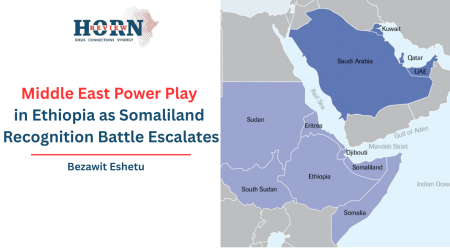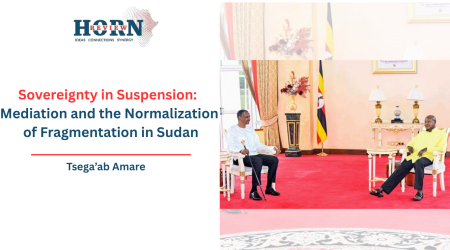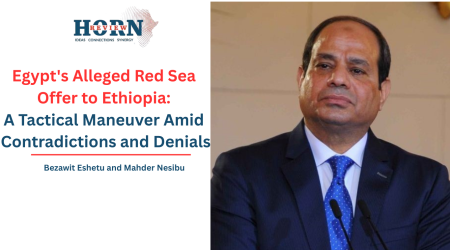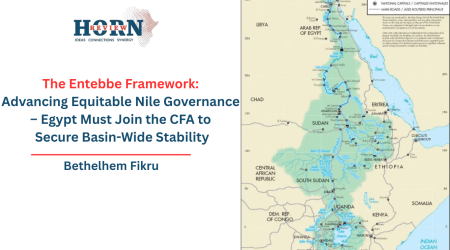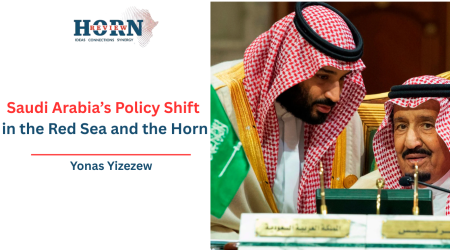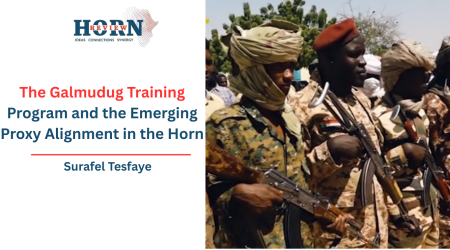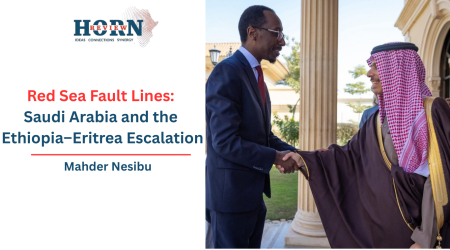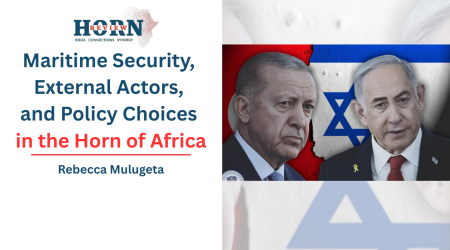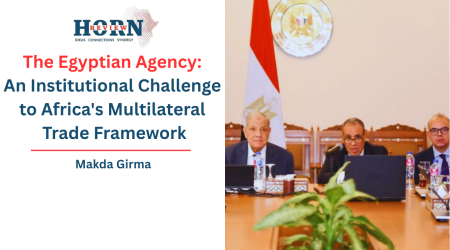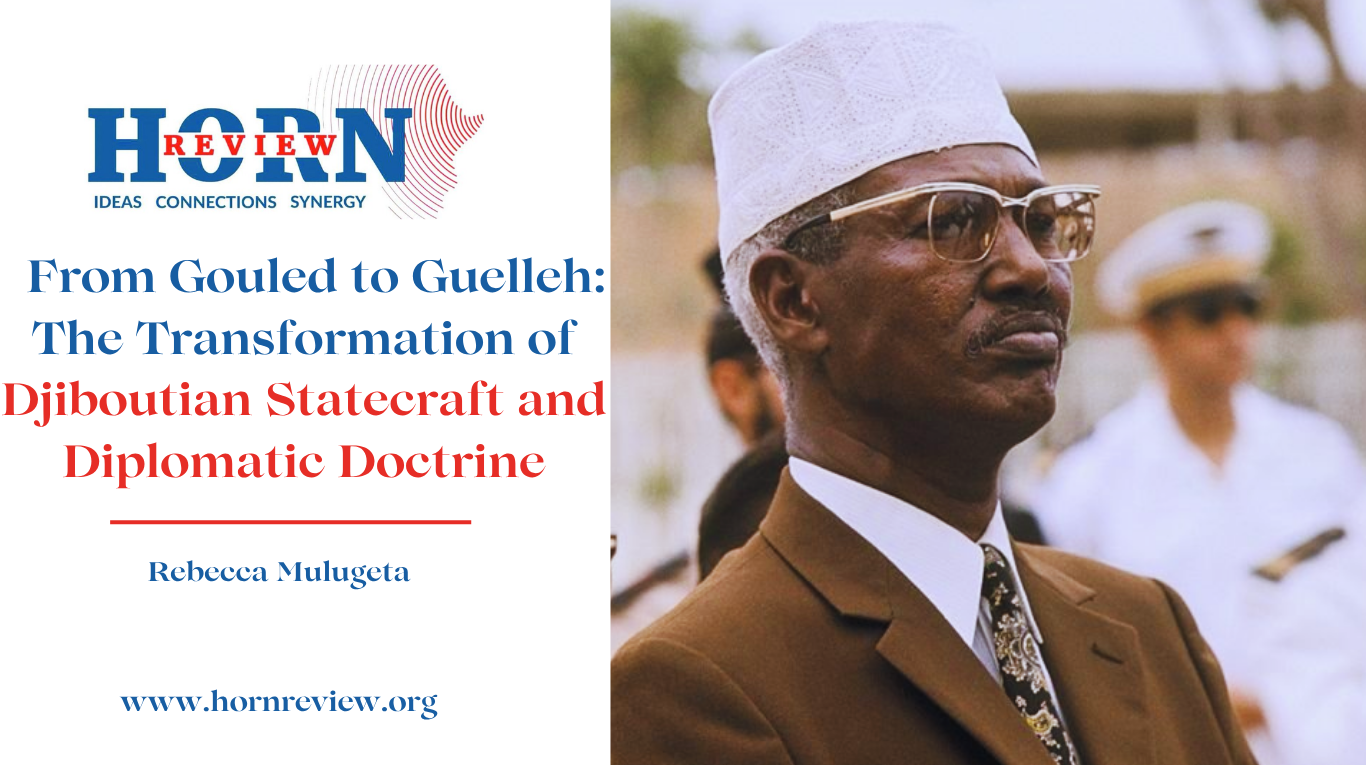
5
Nov
From Gouled to Guelleh: The Transformation of Djiboutian Statecraft and Diplomatic Doctrine
Djibouti’s foreign policy represents an interesting case study of how a small nation can have significant regional influence based on its geographical position, handling multi-ethnic and political dynamics, and tactfully maneuvering between powerful neighbors and global powers. Since its establishment, Djibouti has stood at the crossroads of great powers and at the center of a very strong regional rivalry.
Djibouti’s history before independence is deeply rooted in the colonial ambitions of European powers, particularly France, which extended its control over the region in the late 19th century amid Anglo-French rivalry for the strategic entrance to the Red Sea. French Somaliland, as Djibouti was then called, was established through treaties with local Afar sultans and boundary demarcations with Ethiopia under Emperor Menelik in 1897.
The path to independence was shaped by ethnic dynamics with the Afars, encouraged by France, preferring continued colonial rule to avoid domination by Somalia or Ethiopia, while the Issa Somalis predominantly pushed for independence. Ultimately, Djibouti gained independence in 1977 with ethnic power-sharing arrangements that, however, would later fuel internal conflicts. During the Derg regime in Ethiopia, relations with Djibouti were cautious but pragmatic, as the Marxist Ethiopian government recognized Djibouti’s sovereignty while renouncing territorial claims and supporting Afar groups in Ethiopia and Djibouti to secure strategic interests. The Derg’s policies aimed at regional autonomy were partly designed to neutralize ethnic tensions and control border dynamics. Ethiopia’s Derg regime acknowledged Djibouti’s independence formally but renounced earlier Ethiopian territorial claims to Djibouti and adopted a Marxist ideology. The Derg passed legislation for regional autonomy and allowed the Afar National Liberation Movement (ANLM), a pro-Derg splinter group from the Afar Liberation Front, to operate from Ethiopia. The Ethiopian government’s policies aimed at neutralizing Afar involvement in Eritrean secessionist struggles and maintaining influence over Djibouti’s Afar population.
Relations improved significantly under Meles Zenawi’s EPRDF government after 1991, particularly as Ethiopia became landlocked following Eritrea’s independence. Ethiopia’s reliance on Djibouti’s port for foreign trade intensified, fostering closer diplomatic and economic ties. Nonetheless, tensions persisted due to Djibouti’s active regional policy and port management by Dubai Ports World, coupled with its engagement in Somali reconciliation efforts, in part as a counterbalance to Ethiopian influence in the Horn of Africa. These dynamics reflect a complex relationship shaped by geography, ethnicity, and evolving regional power politics
Coming out of French colonial rule, the independence of Djibouti was nurtured in a tumultuous environment characterized by internal ethnic dividing lines, primarily between the Issa Somali and Afar peoples, and external challenges from the rival ambitions of Ethiopia and Somalia. These dual pressures shaped the foreign policy orientation of the country from the outset. In the time of President Hassan Gouled, Djibouti pursued a cautious survival strategy. Gouled’s foreign policy was anchored on preserving sovereignty amidst powerful neighboring states, Ethiopia and Somalia, which were themselves in violent conflict over the Ogaden region and Somali irredentism.
Djibouti’s Issa Somali population harbored aspirations for a “Greater Somalia,” a scenario that Ethiopia found threatening due to its own Somali-inhabited regions. Gouled’s government faced the precarious task of balancing these external threats with the need to forge internal political stability. His approach was characterized by neutrality and non-alignment, a deliberate policy that kept Djibouti out of the flames of the Ogaden War and Ethiopia’s internal conflicts, yet remained watchful and wary. Even though in its foreign policy it says this delicate balancing act extended beyond mere political rhetoric.Djibouti ensured a strategic alliance with France, the former colonial power, guaranteeing military protection and economic aid that were vital to the young nation’s survival.
Despite overt neutrality in its foreign policy and focused on the survival of the country from the biggest country Ethiopia and Somalia which were also at war at that time, Djibouti subtly maintained mechanisms of control over Ethiopia. One notable method was the confiscation and holding of Ethiopian armaments transiting through its territory, a clear signal of Djibouti’s intent to limit Ethiopia’s military capabilities and assert leverage. This covert antagonism ran parallel to official diplomatic courtesies, revealing that Djibouti’s foreign policy, even under Gouled, was not a naïve act of neutrality but a pragmatic exercise in survival through control and influence. As Djibouti transitioned into the presidency of Ismail Omar Guelleh, the country abruptly shifted from survival to ambition.
Guelleh’s foreign policy emphasized active regional power politics framed by a personalistic and activist diplomacy. His administration sought to elevate Djibouti’s stature beyond a small state reliant on colonial legacies, positioning it as a player capable of influencing Horn of Africa geopolitics and beyond.Central to Guelleh’s strategy was leveraging Djibouti’s strategic location at the mouth of the Red Sea to attract multiple foreign military installations, including those of France, the United States, China, Saudi Arabia, and Japan.
President Ismail Omar Gelleh’s foreign policy became more active due to key regional and global shifts. The 9/11 attacks provided Djibouti with a diplomatic boost, aligning it with U.S. and Western anti-terrorism efforts while balancing Arab world relations, thus enhancing its international stature. Regionally, the collapse of Somalia eased Djibouti’s fears of being overtaken by larger neighbors and reduced port competition, while Ethiopia’s rerouting of trade to Djibouti’s port after the Ethiopia-Eritrea war increased Djibouti’s economic and strategic importance. Additionally, the presence of multiple foreign military bases in Djibouti brought geopolitical attention and security benefits but also complicated regional dynamics, prompting Gelleh to adopt a more assertive foreign policy aimed at securing Djibouti’s regional influence and stability.
This practice not only enhanced Djibouti’s security but also transformed it into a geo-strategic hub crucial to global military and trade interests. Hosting foreign military bases became a pillar of Djibouti’s foreign policy, granting the government significant bargaining power in diplomatic relations across the region. Simultaneously, Guelleh’s administration pursued a policy of mediation and activism in regional conflicts, notably in Somalia. Djibouti hosted the Arta Conference, a significant effort for Somali national reconciliation during Somalia’s state collapse, and sought cooperative relationships with neighboring port authorities to consolidate economic influence. Personal diplomacy defined much of Guelleh’s foreign engagements, traveling extensively to Gulf states and Africa to secure support and strengthen Djibouti’s international partnerships.
Yet, this assertive posture did not soften Djibouti’s stance towards Ethiopia. Instead, recent years have witnessed an intensification of antagonism rooted in Ethiopia’s strategic moves to reduce dependence on Djibouti’s ports. Ethiopia’s investments in Somaliland’s burgeoning Berbera port explicitly challenge Djibouti’s commercial monopoly, sparking diplomatic and economic friction. As Ethiopia seeks to diversify its access to the sea, Djibouti has responded with a blend of overt and covert hostility ranging from political rhetoric to reportedly detaining Ethiopian arms shipments, actions that undermine Ethiopia’s security and provoke regional tensions.These antagonistic dynamics must also be understood through the lens of Djibouti’s internal ethnic politics. Dominated historically by the Issa Somali elite, Djibouti’s marginalized Afar community has recently gained political traction through the Afar Good Party. For Ethiopia, the Afar factor presents both an opportunity and a risk.
The transnational ethnic ties between Ethiopia’s Afar population and Djibouti’s Afar can foster closer cross-border cooperation, which Ethiopia can cultivate the pro-ethiopian affairs for the mutual benefit of the countries. However, this ethnic diplomacy requires delicate handling to avoid exacerbating internal ethnic rivalries within Djibouti or regional instability that could negatively impact Ethiopia. Ethiopia’s relationship with Djibouti is therefore ambivalent, a blend of dependency, rivalry, and uneasy diplomacy. While Djibouti provides critical access to maritime trade routes essential for Ethiopia’s economy, the country’s foreign policy reveals a persistent intent to leverage this dependency for geopolitical influence. Ethiopia must move beyond passive partnership to a critical and strategic stance that acknowledges Djibouti’s ambitions and maneuvers.
It requires a strategic diversification of port access-possibly through expanded investment in alternative ports, such as those in Eritrea or Somaliland-and a broader regional economic integration effort. The diplomatic engagements with Djibouti must be complemented by strong security and economic strategies that reduce the vulnerability of Ethiopia to coercion; meanwhile, careful investment in ethnic and political channels within Djibouti, especially among the Afar, can build allies that will moderate Djibouti’s posture. In summary, Djibouti’s foreign policy encapsulates the challenges faced by a small state navigating immense regional and global currents.
The transformation from Gouled’s cautious survival approach to Guelleh’s ambitious regional power play underlines continuity with change: sovereignty is preserved, while influence is pursued. For Ethiopia and the Horn of Africa, understanding and responding to Djibouti’s multi-layered foreign policy is not only a diplomatic exercise but also goes to the heart of regional peace, security, and development. Ethiopia needs to reach out to Djibouti with clear-eyed realism, tactical independence, and nuanced diplomacy to secure its national interests in this complex regional landscape. This analysis calls for a reconceptualization of Ethiopian-Djibouti relations from a transactional reliance on ports toward a mature strategic partnership characterized by mutual respect, equitable cooperation, and shared regional prosperity.
By Rebecca Mulugeta, Researcher, Horn Review

